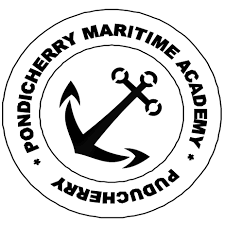Controlling Hypertension at Sea
Life at sea is demanding — long hours, high stress, unpredictable weather, and limited access to healthcare can make managing chronic conditions like hypertension (high blood pressure) a major challenge. Yet, keeping your blood pressure under control is crucial for your health, safety, and ability to perform effectively onboard.
Controlling Hypertension at Sea
Understanding Hypertension Hypertension is when your blood pressure consistently stays above normal levels (usually 140/90 mmHg or higher). Left unchecked, it can lead to serious issues such as heart disease, stroke, or kidney problems — all of which are especially risky in remote maritime environments. Why Seafarers Are at Risk Several factors common in the maritime lifestyle can contribute to high blood pressure: Irregular sleep patterns due to shift work High-sodium diets from preserved or processed food Lack of physical activity in confined spaces Stress and isolation from long periods away from home Smoking and alcohol use as coping mechanisms Tips to Control Hypertension at Sea 1. Regular Monitoring Keep a digital blood pressure monitor onboard. Track your BP readings at the same time each day and log them. Early detection can prevent complications. 2. Medication Compliance Always bring an adequate supply of prescribed medication for the entire voyage, plus extra for emergencies. Set reminders or pair it with daily routines to ensure you never miss a dose. 3. Adopt a Heart-Healthy Diet Limit salty, fatty, and processed foods. Incorporate more fruits (like apples, bananas) and vegetables if available. Choose lean proteins like fish and chicken over red meats. 4. Exercise Onboard Even in tight spaces, regular movement helps: 15–30 minutes of walking, stretching, or body-weight exercises daily Simple routines like squats, push-ups, or using resistance bands 5. Manage Stress Practice deep breathing, meditation, or mindfulness techniques Stay connected with family via calls or messages Engage in hobbies (reading, music, journaling) 6. Limit Stimulants Cut back on caffeine, smoking, and alcohol — all of which can spike your blood pressure. Emergency Readiness Inform the ship’s medical officer about your condition and ensure your crewmates are aware of how to assist in case of a hypertensive emergency. Keep your medical documents and prescriptions easily accessible. Final Thoughts Hypertension doesn’t have to anchor your health. With awareness, planning, and discipline, seafarers can control high blood pressure and lead a strong, steady life at sea. Your health is your lifeline — protect it, even in the middle of the ocean.





